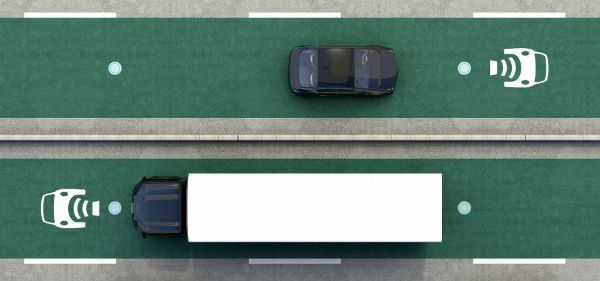The UK’s Loughborough University (LU) is leading a 12-partner international project that will help European cities assess the future of fully connected and driverless transportation across the continent and plan in advance for the impact it will have on infrastructure and society.
The £5.7m (US$7.2m) Levitate (Societal Level Impacts of Connected and Automated Vehicles) project will look at how cities, towns, regional authorities and national governments can use technology, and create new systems to accommodate the forecast growth of driverless cars, buses, taxis and pods, as well as autonomous freight and logistics.
Predictions estimate that 25% of vehicles will be completely autonomous by 2030, with the remaining 75% being classed as highly autonomous; able to steer, accelerate/decelerate and monitor the surrounding environment.
In preparation for the wide-ranging impact of the transition, Loughborough University will lead a three-year EU (Horizon 2020) funded program that aims to assess the short-, medium- and long-term impacts of connected and autonomous vehicles (CAV) on mobility, safety, environment, society, and other areas.
The Levitate project will address a number of questions including:
• How will autonomous vehicles improve safety, congestion and the environment?
• What are the key policy decisions to maximize the benefits and minimize negative outcomes?
• What are the mobility technologies that will give the greatest economic return?
• What alternative methods can be used to achieve the benefits of autonomous vehicles but at lower cost?

A team from LU’s Loughborough Design School (LDS) and the School of Architecture, Building and Civil Engineering (ABCE) will lead the work on impact assessment methodologies and will coordinate the project. The other partners are: Austrian Institute of Technology (AIT); Aimsun (Spain); National Technical University of Athens (Greece); POLIS – Cities and Regions for Sustainable Transport (Belgium); Dutch Institute for Road Safety Research (Netherlands); Institute for Transport Economics (Norway); Transport for Greater Manchester (TfGM – UK); City of Vienna (Austria); Queensland University of Technology (Australia); Tongji University (TJU – China); and University of Michigan (USA).
Levitate’s four key objectives are:
• Create a web-based ‘toolkit’ that helps city planners forecast the impact of autonomous mobility and design transportation infrastructure accordingly;
• Develop transportation infrastructure scenarios, based on mobility technology, for urban shuttles, passenger cars and freight services;
• Establish a method for assessing the short-, medium- and long-term impacts of autonomous systems on mobility, safety, environment, society, and other areas;
• Apply the methods and forecast the impact of driverless transport in a variety of environments.

“The aim of the Levitate project is to help cities and regions to find the best ways to improve mobility through the increasing numbers of connected and automated vehicles,” explained principal investigator, Prof. Pete Thomas, of LDS. “These vehicles bring new challenges and have the potential to disrupt mobility in both good and bad ways. Our job in Levitate is to provide a new scientific basis that will enable cities and regions to make policy decisions that are the best for each circumstance.”
Co-investigator Prof. Mohammed Quddus, of ABCE, added, “Levitate will invent new algorithms and techniques to evaluate societal level impacts of CAVs and will address a complex issue for policy makers; where and when the benefit of CAVs is going to be maximized.”






